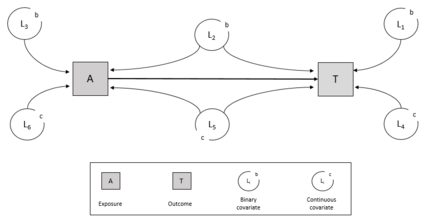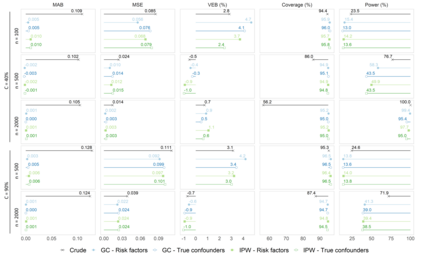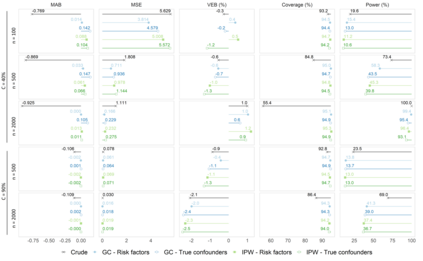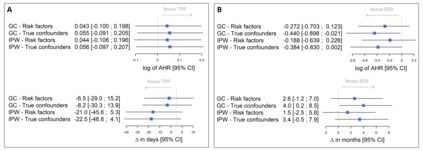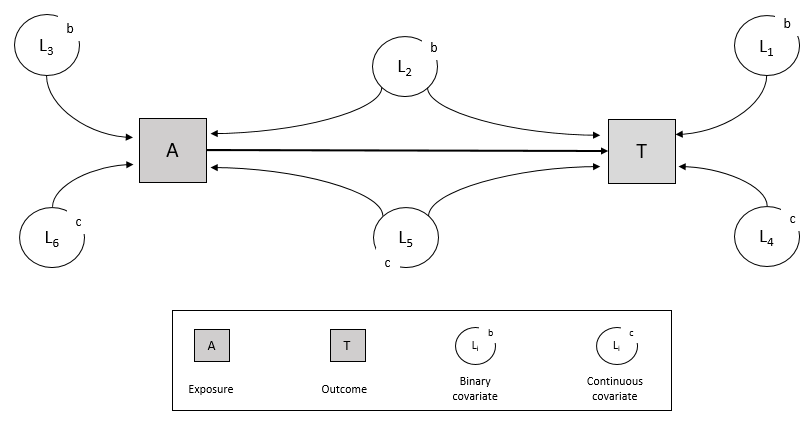Inverse probability weighting is increasingly used in causal inference, but the g-computation constitutes a promising alternative. We aimed to compare the performances of these methods with time-to-event outcomes. Given the limitations of the interpretability of the hazard ratio for causal inference, our target estimand of interest is the difference in restricted mean survival times. We report the findings of an extensive simulation study showing that both inverse probability weighting and g-computation are unbiased under a correct model specification, but g-computation is generally more efficient. We also analyse two real-world datasets to illustrate these results. Finally, we update the R package RISCA to facilitate the implementation of g-computation.
翻译:在因果推断中越来越多地使用反概率权重,但G-计算是一种有希望的替代办法。我们的目标是将这些方法的性能与时间对活动结果进行比较。鉴于因果推理的危险比率解释的局限性,我们的目标估计值是有限的平均存活时间的差异。我们报告了一项广泛的模拟研究结果,结果表明,在正确的模型规范下,反概率权重和g-计算是公正的,但g-计算一般而言效率更高。我们还分析了两个真实世界的数据集,以说明这些结果。最后,我们更新了R包的RISCA, 以便利执行g-计算。

